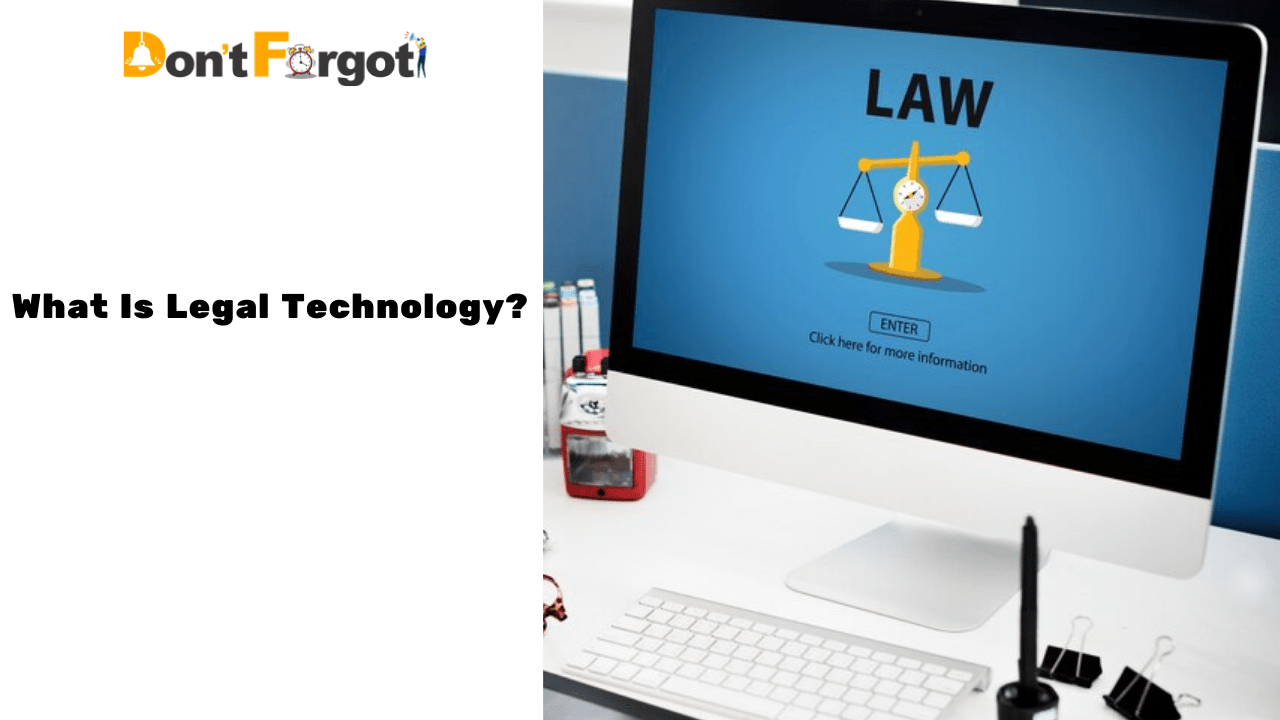Legal technology encompasses various digital platforms and software that aim to simplify legal processes, boost operational efficiency, and improve access to legal services. These tools, which include automation systems and AI-powered solutions, are revolutionizing the way law firms conduct their business. From document automation and case management systems to AI-driven legal research, these innovations are transforming how law firms operate.
The adoption of legal tech is empowering attorneys to manage complex workflows, reduce operational costs, and offer clients better service.
As advancements continue, understanding legal technology is crucial for firms looking to stay competitive in an increasingly digital world.
Key Takeaways
- Legal technology, or LegalTech, is about using legal tech and digital solutions.
- Legal Practice Management Software helps firms manage their work, clients, and money better.
- E-Discovery Tools change how legal teams find, analyze, and handle electronic evidence in court cases.
- Legal technology enhances efficiency within the legal sector, reduces operational costs, and elevates the quality of client services. By integrating digital tools, law firms can streamline processes, making their operations more cost-effective and client-focused.
- It’s important for law firms and legal experts to stay ahead in the digital age by knowing about legal technology.
Unveiling the Transformative World of Legal Technology
The legal world is changing fast, thanks to new tech like Legal Practice Management Software and Cybersecurity for Law Firms. These tools are changing how lawyers work. They help lawyers work better, serve clients better, and do more in less time.
1. Understanding the Digital Landscape
Legal tech is always improving, offering law firms many tools to make work easier. These include cloud-based systems and advanced e-discovery tools, which help with everything from talking to clients to managing cases.
2. Empowering Legal Professionals
Using Legal Practice Management Software changes how lawyers work every day. These tools help manage client info, schedule meetings, track work hours, and make reports. Cybersecurity for law firms keeps client data safe and builds client trust.
These new technologies make legal teams work better together and serve clients well. As legal work changes, using these tools will be key to success for law firms.
What Is Legal Technology?
Legal technology, or “legal tech,” uses technology and digital solutions in law practice. It’s changing the legal world, making work easier and better for lawyers. It includes many tools and platforms that change how legal tasks are done.
Legal tech has many tools. For example, practice management software makes admin tasks easier. E-discovery tools help lawyers quickly review digital evidence. Contract systems automate contract work, and legal research platforms give quick access to legal information.
Document automation tools speed up legal documents, and legal analytics give insights for better decisions. Lawyers can use legal tech to work better, make clients happier, and stay competitive.
| Key Components of Legal Technology | Description |
|---|---|
| Practice Management Software | Tools that streamline administrative tasks, client communication, and workflow management. |
| E-Discovery Tools | Applications that facilitate the efficient collection, review, and analysis of digital evidence. |
| Contract Lifecycle Management | Systems that automate the creation, negotiation, and execution of legal contracts. |
| Legal Research Platforms | Online databases and tools that provide access to a comprehensive library of legal resources. |
| Document Automation | Software that generates customized legal documents, reducing the time and effort required. |
| Legal Analytics | Applications that leverage data-driven insights to support strategic decision-making. |
By using legal technology, lawyers can make their work easier and better, work more efficiently, and serve their clients well. As the legal landscape evolves, understanding legal technology will be key for lawyers to stay ahead and adapt to future challenges. Familiarity with these tools can position legal professionals for success in an increasingly digital industry.
Key Components of Legal Technology

The legal world is changing fast. Two important parts of legal tech are now key for law offices: legal practice management software and e-discovery tools. These tools are changing how lawyers do their jobs. They make things run smoother and work better.
1. Legal Practice Management Software
Legal practice management software makes running a law firm easier. It has tools for taking in clients, billing, managing tasks, and working together. This helps legal teams stay organized and keep up with work. It also saves time by automating some tasks and keeping all client and case information in one place.
2. E-Discovery Tools
Lawyers can find e-discovery challenging. But e-discovery tools are changing that. They help find, sort, and analyze electronic information quickly during legal cases or investigations. These tools use smart tech to speed up the process and ensure important evidence is found and handled correctly.
Using these legal tech parts, law firms can work better, serve clients better, and keep up with legal changes.
Revolutionizing the Legal Workflow
Legal technology is changing how lawyers do their jobs. It speeds up research and automates documents. Legal Research Platforms give lawyers quick access to a wide range of legal information, helping them make better decisions quickly.
Legal Document Automation tools make complex legal documents easier to create, reducing the time and effort needed to produce quality documents.
But there’s more. Legal Analytics helps law firms use data to improve their work. They look at lots of information to make smart decisions and spot trends. This is changing the legal world, bringing a new era of efficiency and smart choices.
As the legal world keeps changing, using new Legal Research Platforms, Legal Document Automation, and Legal Analytics is key. Law firms that adopt these will stay ahead and offer top-notch legal services.
FAQ
What is legal technology?
Legal technology, or LegalTech, combines tech with the legal field. It uses many tools to make legal work easier, faster, and better. This includes software and apps that help with legal tasks.
What are the key components of legal technology?
Key parts of legal tech include software for managing legal work, tools for finding documents in cases, and systems for managing contracts. There are also platforms for legal research, tools for automating documents, and analytics for legal data.
How does legal practice management software help law firms?
This software makes law firms run smoother. It helps with tasks like taking in clients, billing, and working together, making lawyers work better and more efficiently.
What are e-discovery tools, and how do they benefit legal professionals?
E-discovery tools help lawyers find and analyze documents in legal cases. They make the process easier and faster, which improves their management of legal discovery.
How are legal research platforms transforming the way lawyers work?
These platforms give lawyers quick access to a wide range of legal information, which helps them research faster and make better decisions.
What is the role of legal document automation in the legal workflow?
Automation tools make creating legal documents easier. They save time and effort for writing contracts and filling out forms.
How can legal analytics benefit law firms?
Legal analytics help law firms use data to make smart choices. They can improve their work processes, better serve clients, and stay ahead in the market.
How does legal technology impact cybersecurity for law firms?
Legal tech, such as secure cloud services and strong cybersecurity, is key to protecting law firms and their clients’ data. It’s vital for keeping sensitive information safe and building trust with clients.
Conclusion
What is legal technology? It’s a big change that’s improving the legal world. Law firms and legal experts use many tools to work smarter and serve clients better. These tools help with managing cases, finding legal information, and using data to make smart choices.
As technology improves, it’s key for law firms and experts to keep up. This helps them stay ahead and serve clients well in today’s digital world. Legal technology means using the latest tools to make your work more efficient and improve your service.
Knowing how legal technology works lets you help your legal team work better. It makes your firm more productive and leads you in the fast-changing legal field. By embracing this digital change, you can improve your legal practice and give your clients great results.

